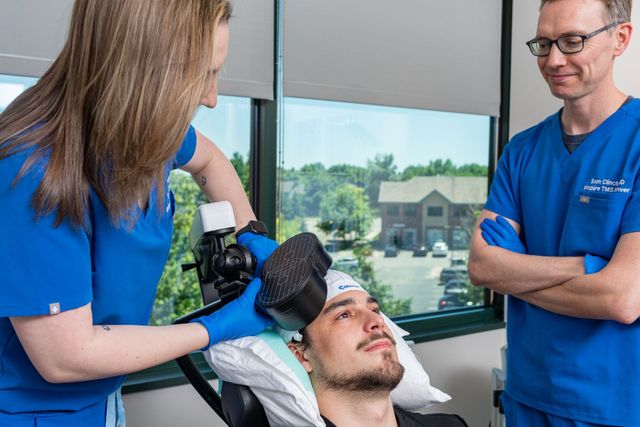
When people search for answers about depression treatment, many come across Transcranial Magnetic Stimulation (TMS). It’s often marketed as a safe, non-invasive therapy with fewer side effects than traditional medications. Yet, for some, the experience is far from positive. In fact, phrases like tms ruined my life have surfaced online, shedding light on the darker side of this therapy. These personal accounts raise an important question: Is TMS really the safe solution it claims to be, or do patients need to be more cautious about potential risks?
TMS is an FDA-approved treatment for depression and other mental health conditions. It works by delivering magnetic pulses to targeted areas of the brain believed to control mood. While many report improvements, others experience severe side effects that disrupt their daily lives. For individuals who feel harmed, the consequences can be long-lasting and deeply distressing.
Understanding why some patients claim “TMS ruined my life” requires examining both the science and the real-world stories behind this controversial treatment.
The Promise of TMS Therapy
TMS is promoted as a groundbreaking solution for treatment-resistant depression. Unlike medications, it doesn’t involve systemic side effects such as weight gain, sexual dysfunction, or drowsiness. For many, this makes TMS seem like a safe and appealing option.
Healthcare providers emphasize its non-invasive nature, minimal downtime, and relatively high success rate. Patients who have not found relief from antidepressants may see it as their last hope. Unfortunately, hope can sometimes cloud the reality of possible risks.
Common Side Effects of TMS
Not every patient experiences life-changing benefits. Instead, some struggle with side effects such as:
- Headaches and migraines
- Scalp pain or discomfort
- Cognitive disturbances (memory problems, concentration issues)
- Fatigue and dizziness
- Emotional instability
While these effects are often downplayed as “temporary,” many patients insist they linger long after treatment ends.
Why Some Say “TMS Ruined My Life”
The phrase isn’t just dramatic—it reflects the very real suffering of patients who feel misled by promises of safety and effectiveness. For these individuals, TMS has caused issues such as:
- Worsening depression: Instead of improvement, some report deeper depressive symptoms after TMS sessions.
- New mental health struggles: Anxiety, depersonalization, or emotional blunting may emerge.
- Physical pain: Persistent headaches and nerve sensitivity can interfere with daily functioning.
- Cognitive decline: Difficulty with focus, memory, and problem-solving leaves some feeling permanently impaired.
- Sense of betrayal: Patients often feel providers did not adequately warn them about potential risks.
These experiences highlight the importance of transparency and realistic expectations before pursuing any mental health treatment.
The Science Behind TMS – Not Always Perfect
Research shows TMS can be effective, but it’s not universally successful. Clinical trials highlight improvement in many patients, but a subset either fails to respond or reacts negatively. Just as with medications, brain stimulation therapies are not one-size-fits-all.
Factors that may influence outcomes include:
- Individual brain chemistry
- Frequency and intensity of magnetic pulses
- Pre-existing neurological conditions
- Overall mental health history
For those adversely affected, the therapy’s scientific promise becomes a personal nightmare.
Stories That Reflect the Other Side of TMS
Personal stories matter. For every patient who says TMS gave them a second chance at life, there’s another saying it made things worse. Forums and blogs are filled with testimonies like “TMS ruined my life,” where individuals describe feeling abandoned by their doctors after reporting serious side effects.
Some even claim their providers dismissed or minimized their concerns, making the emotional burden heavier. Patients often say they were told side effects were rare or mild, only to discover they were neither rare nor temporary.
Alternatives to TMS Therapy
For individuals concerned about the risks, it’s important to remember that TMS isn’t the only option. Alternative treatments may include:
- Psychotherapy approaches such as CBT, DBT, or trauma-focused therapy
- Medication management with newer antidepressants or combination strategies
- Lifestyle interventions including exercise, nutrition, and sleep regulation
- Holistic therapies like mindfulness, meditation, and acupuncture
- Emerging treatments such as ketamine therapy or neuromodulation techniques
Patients deserve to know all possible paths before committing to a therapy that could change their lives—for better or worse.
The Need for Informed Consent
The core issue behind negative TMS experiences often comes down to informed consent. Were patients adequately informed of the risks? Did providers emphasize both benefits and limitations? In too many cases, the answer is no.
Medical professionals must take responsibility for ensuring patients understand what they’re signing up for. Mental health treatment is deeply personal, and no one should feel deceived about potential outcomes.
Finding Balance in the TMS Debate
While TMS has helped many, dismissing the voices of those harmed creates an incomplete and biased picture. Both sides must be acknowledged. For someone struggling with depression, hearing only the success stories could lead to unrealistic expectations. At the same time, avoiding treatment out of fear may prevent people from finding relief.
Patients must weigh the pros and cons, seek multiple opinions, and research thoroughly before starting TMS therapy. It’s also crucial to monitor how they feel throughout treatment and communicate openly with their provider.
Conclusion
The reality is complex—TMS can be life-changing in both positive and negative ways. The phrase “tms ruined my life” should not be ignored, as it represents individuals who feel harmed by a treatment they trusted. By sharing their experiences, these patients highlight the need for transparency, better patient education, and individualized care.
If you or a loved one are exploring depression treatment options, take time to review multiple approaches and consult trusted professionals. True healing comes from finding the right fit, not rushing into the latest solution. For some, that means TMS; for others, it means a different path. The key is informed choice and compassionate care, values that clinics like Treat Mental Health California strive to uphold.
